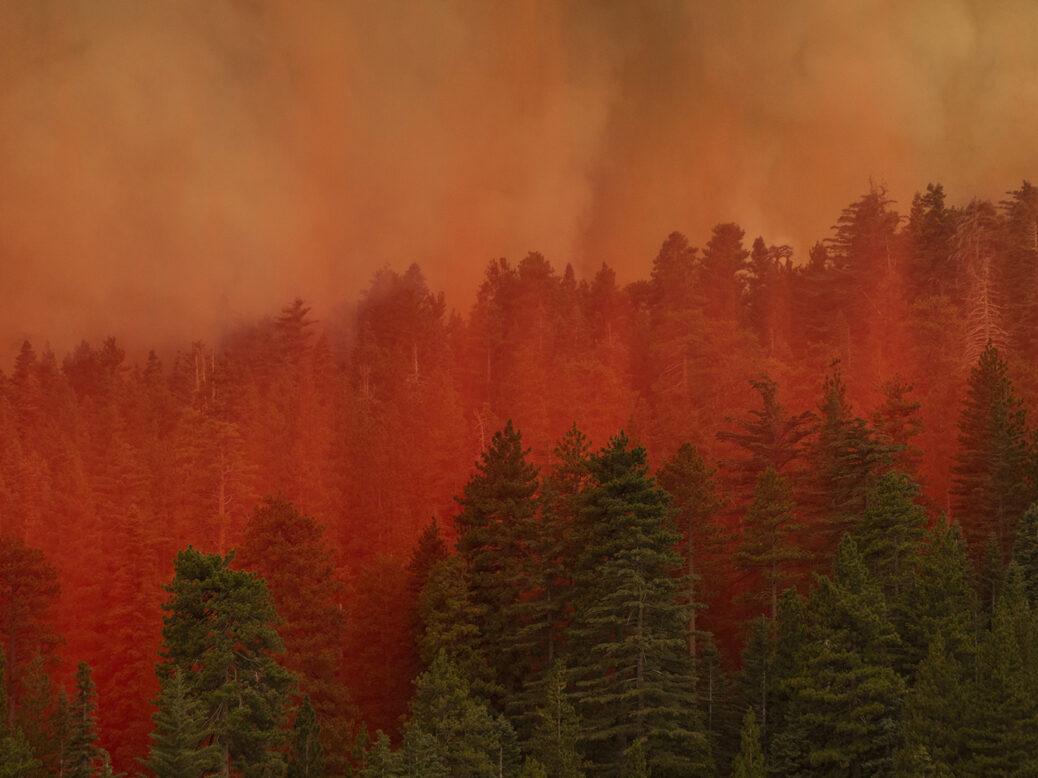
On 25 April 2022 Australia’s public radio station replayed an interview with Jonathan Franzen in which the American author suggested we should resign ourselves to the climate crisis. “We literally are living in end times for civilisation as we know it… We are long past the point of averting climate catastrophe,” he intoned ominously.
He is not alone. Climate doomism is, in some circles, becoming the new climate scepticism. Instead of denying the existence of climate change there is an increasing trend to “portray climate change… as an essentially lost cause, a hopeless fight”, as the American climate scientist Michael E Mann writes in his excellent book The New Climate War.
While Franzen is no climate sceptic, such pessimist arguments play firmly into the hands of vested interests and make it easier for them to get away with business as usual. The clean-tech author Ketan Joshi describes doomism as “the new fossil fuel protectionism”, Mann notes. “Helplessness is the new message.” If the end of the world is coming anyway, why should politicians and industry support new technologies and ways of operating?
It could be argued that certain right-wing politicians in the UK and the EU are making the most of this attitude. Add in the cost-of-living crisis and the war in Ukraine, and they have the perfect pretext for pleading for more fossil fuels and less climate action, while not actually denying that climate change is happening.
The Brexiteer Nigel Farage and similarly-minded Conservative MPs are now gunning for the UK’s plans for net-zero greenhouse gas emissions. They claim that energy efficiency measures and installing wind turbines and solar panels costs too much. Opening a new coal mine, fracking and new oil and gas fields in the North Sea are their preferred, alternative choices for energy security, never mind that such options will ultimately lead to bigger costs for everyone, not least the poorest members of society.
[See also: Who pays to close the climate inequality gap?]
In France, the far-right politician Marine Le Pen campaigned during the presidential election on anti-renewable energy policies, insisting that any climate action would be on France’s terms rather than as dictated by climate science.
“A rich, white, doomer trope,” is how Brynn O’Brien, executive director of the Australasian Centre for Corporate Responsibility, a research and advocacy organisation, described Franzen’s statement. “The only people who fall for it are rich white people who think they will be spared until everyone and everything else is gone. His position is unscientific, morally careless (at best) and politically blinkered.”
Global heating is a crisis, she acknowledges. “Things are very bad and will get much worse. But scientifically and politically there are still so many choices we can and must make to avoid all-out catastrophe, to avoid ‘end times’.”
Many of these choices and some of the people leading action to cut emissions and reduce environmental damage are discussed in Katharine Hayhoe’s book Saving Us. The Canadian climate scientist and evangelical Christian believes that facts about levels of global heating and their potential impacts can play only a small role in changing people’s minds and motivating them to take action on climate change. Instead, conversations about shared values are key to eradicating climate doomism, denialism or scepticism and creating hope for the future, she argues.
In short, we need to open our minds. O’Brien takes a similar view about a lack of climate action and resistance to change. “This is a crisis of imagination as much as anything else,” she said. “We are losing because too many rich and powerful people can’t or won’t imagine a better way. So f*** them, and f*** Franzen.”
In Franzen’s 2010 novel Freedom the protagonist, Walter Berglund, is fully submerged in the trials and tribulations of middle-age. In addition to the required affair with a much younger woman, his green tendencies are thrown out of kilter when he manages to persuade an oil billionaire to fund a nature reserve to protect a threatened species of songbird. However, the quid pro quo is that mining companies will be allowed to extract coal on the reserve. When Berglund tries to justify the choice to his wife, Patty, who sarcastically says: “So yay coal. Let’s burn more coal. Rah, rah.” Berglund dismisses her by saying that “it’s complicated” and ranting against nuclear and wind power.
While the clean energy transition won’t be easy, change is less complicated than the doomsayers would have us believe. Science shows that coal has no place in a net-zero world, economics reveal that onshore wind and solar are the cheapest sources of energy, and data indicates that powering the world with renewables would take up less land than using fossil fuels. Activists are also clear that change needs to happen now — climate doomism will only delay essential action. “The world is in a race against time,” said António Guterres, the UN secretary-general. “We cannot afford slow movers, fake movers or any form of greenwashing.”
Mann insists we all need to wake up, fight “the forces of inaction” and make sure we don’t turn into Walter Berglunds. “Doomist men are dead wrong,” he writes. “Our demise is only assured if we follow their lead and surrender. If your midlife crisis has caused you to give up on the future, then step aside. Get out of the way. But please don’t obstruct others stepping forward to do battle.”
[See also: Can we save the Amazon rainforest?]






